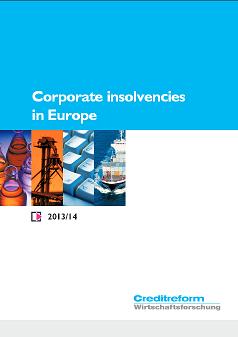CER (2014) “The EU and an independent Scotland“, Centre for European Reform Blog, 23 July. Scots living in Scotland vote on September 18th on whether to end their 300-year union with England. If they win, the nationalists aim for actual independence, and full EU membership, in March 2016. Opinion polls currently show a lead for the pro-Union side, but 15 or 20 per cent remain undecided. The debate is …Read More
Europe Must Escape A Savings Trap, Not A Liquidity Trap
Terzi, A. (2014) “Europe Must Escape A Savings Trap, Not A Liquidity Trap“, Social Europe Journal, 23 July. The anti-austerity vote in the European elections reflected two different kinds of discontent. One is a feeling of frustration, which is invigorating nationalism: the vote for “less Europe.” The other is a lack of confidence in current EU policies: the vote for “another Europe.” In both cases, voters revealed that they …Read More
How Money And Credit Work
Meyer, H. (2014) “How Money And Credit Work“, Social Europe Journal, 23 July. Do you think that in recent years, as a result of the global economic crisis, the whole discussion about public policy has become increasingly focussed on economics? And that much of the policy discussion is based on core concepts that are quite poorly understood, including by many policy-makers? If your answer to these question is yes you are not alone. At …Read More
Juncker’s new start for Europe – a brief summary of past Bruegel research as it relates to Juncker’s new agenda for the European Commission
Dale, E. & Porcaro, G. (2014) “Juncker’s new start for Europe – a brief summary of past Bruegel research as it relates to Juncker’s new agenda for the European Commission“, Bruegel Institute, 23 July. Last week, President Elect Jean-Claude Juncker published his agenda for Europe. To inform the policy debate, we would like to highlight and summarize some of the key research Bruegel scholars have done over the last …Read More
Rebalancing in the Euro Area and Cyclicality of Current Account Adjustments
Tressel, T. & Wang, S. (2014) “Rebalancing in the Euro Area and Cyclicality of Current Account Adjustments“, Working Paper No. 14/130, International Monetary Fund, 22 Ιουλίου. The paper examines progress with the external rebalancing of euro area deficit countries. Relative prices are adjusting at different pace across countries and with different compositions of wage cuts and labor shedding. There is so far limited evidence of resource re-allocation from non-tradable …Read More
The Gallic Heart of Europe
Solana, J. (2014) “The Gallic Heart of Europe“, Project Syndicate, 22 July. Europe needs a France that is proud, prosperous, and able to overcome its gloomy suspicions. We need the great country that was and will be – the France that inspired the entire world with its revolution, culture, and values. Alain Peyrefitte, the scholar, politician, and confidant of Charles de Gaulle, said that “without Europe, France will be …Read More
Sovereign debt markets in turbulent times: A view of the European crisis
Broner, A. F., Erce, A., Martin, A. & Ventura, J. (2014) “Sovereign debt markets in turbulent times: A view of the European crisis“, VoxEU Organisation, 23 July. By 2010, Eurozone periphery countries had faced severe debt problems and a falling credit to the private sector. This column proposes a theory to interpret these events. Governments can discriminate in favour of domestic creditors and public debts trade in secondary markets. …Read More
Corporate Insolvencies in Europe, 2013/14
ICAP (2014) “Corporate Insolvencies in Europe, 2013/14“, Creditreform, Wirtschaftsforschung, July. The great European economic crisis: For five years now, it has had the continent firmly in its grip. Recently, though, there were optimistic signs when Greece and Portugal succeeded for the first time in ages in placing substantial government bonds on the capital markets and thus making themselves independent of ESM and Co. For the indebted countries of Southern …Read More
Europe’s Options
Boskin J. Μ. (2014) “Europe’s Options“, Project Syndicate, 22 July. Many Europeans have come to believe that they have weathered the economic and financial storm. In the last two years, deficits and debt have stabilized. Yields on the sovereign debt of the eurozone periphery’s weak economies have fallen sharply. Portugal and Ireland have exited their bailout programs. Talk of Greece leaving the euro has subsided. CommentsView/Create comment on this …Read More
Europe’s Stalemate
Tamborini, R. & Farina, F. (2014) “Europe’s Stalemate“, Economonitor, 17 Ιουλίου. The causes of the present crisis of the European Union trace back to the past phases of the integration process. In the 1980s, the series of agreements and common policies of “mutual advantage” among the EU members came to an end. Most economies of scale had been exploited by the EU countries, as an effect of the access …Read More





